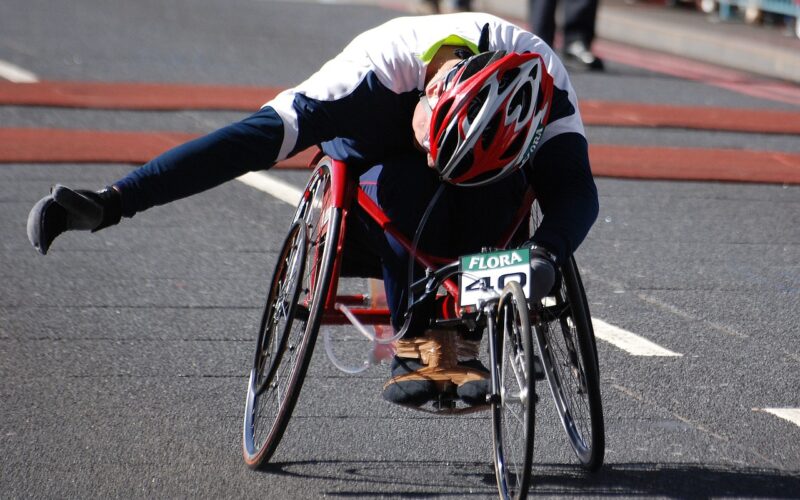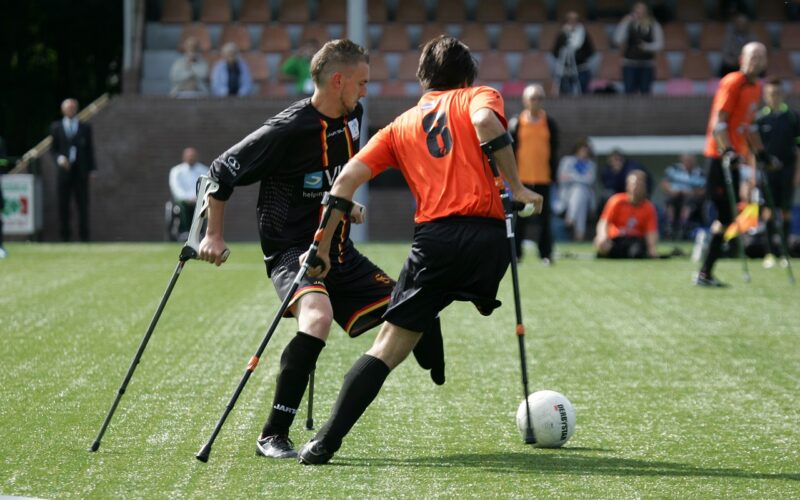Disability comes in many forms, with physical and mental health being two of the most commonly encountered. For those living with disability, life can be filled with a multitude of challenges, from daily struggles to medical obstacles and poverty.
Often times it can seem like an impossible task for disabled people to navigate their way through society; however, populating this world are inspiring individuals who not only cope but also strive every day despite all adversity.
Through determination, resilience and endless amounts of hard work they pursue their dreams and aspirations, proving that no disability should stop someone from achieving great things in life.
Let's explore the complex world of disability: how disabled people cope on a day-to-day basis as well as the systems put into place by governments to support them. We'll look at stories of success from inspiring individuals and discover what more can be done by organisations and communities to ensure a brighter future for everyone impacted by disability.
Understanding disability
Disability is a complex and multifaceted phenomenon, and understanding it can be challenging. From physical disabilities to developmental disabilities, there are many different types of disabilities that affect people in different ways.
Physical disabilities, such as blindness or mobility impairments, limit a person's physical functioning and may require the use of assistive devices or accommodations.
Developmental disabilities, on the other hand, impact a person's ability to learn, communicate, and socialise. Autism and Down syndrome are common examples of developmental disabilities. It's essential to understand the different types of disabilities to foster broader inclusivity and equity for people with disabilities in society.
Recognising the various types of disabilities and their unique challenges can assist in developing better approaches to support and accommodate people with disabilities to live a fulfilling life.
How society perceives people with disabilities
People with disabilities have long been stigmatised and discriminated against in society. However, it is important to overcome this prejudice and misconceptions to create an inclusive and supportive environment that values each individual's unique abilities and contributions.
Through education and awareness, we can challenge harmful stereotypes and biases to create a more equitable society for all. By recognising the diverse range of talents and strengths that people with disabilities possess, we can create opportunities for them to thrive and reach their full potential.
It is time to shift the focus from limitations to possibilities and celebrate the diversity that enriches our communities.
Let us work towards a more inclusive and accepting world, where all individuals are valued and respected.
The reality of living with a disability
Living with a disability can be a challenge that requires you to make significant adjustments to your life. Whether it's a physical or cognitive disability, the reality of living with it means adapting to changes that may impact your everyday activities.
You may require new forms of transportation, assistive devices, or accommodations at work or school. However, it's essential to focus on the positive aspects, learning to embrace your abilities and becoming more creative in finding ways to adapt your lifestyle. Acceptance and self-advocacy are critical components to achieving a fulfilling life with a disability.
So, while it may take time to adjust, know that you're not alone, and there are many resources available to help you navigate this new chapter in your life.
Accessibility in the workplace
In today's society, it is important that accessibility in the workplace is taken into consideration. This means ensuring that disabled individuals have equal opportunities when it comes to employment and career advancement.
It can be easy to overlook certain aspects of accessibility, but taking the time to make necessary adjustments can make a significant impact on the lives of those with disabilities. Some examples of common changes include providing assistive technology and making workplace facilities more wheelchair-friendly.
Ultimately, prioritising accessibility is not only the right thing to do, but it can also benefit companies by creating a more diverse and inclusive workplace.
Adaptive technology and assistive devices
Adaptive technology and assistive devices have revolutionised the lives of individuals with disabilities, making everyday tasks much easier to manage.
From voice-activated home assistants and modified utensils to high-tech mobility aids and speech synthesizers, these innovative tools remove barriers to independence and allow individuals with disabilities to participate fully in society.
Through the use of adaptive technology and devices, people with disabilities can access employment opportunities, communicate with loved ones, navigate personal finances, and even pursue hobbies and interests that they might have previously thought were impossible.
The advancements in assistive technology help individuals to live more independently, promote inclusivity, and create a more equitable world.
Strategies for self-advocacy and empowerment
Self-Advocacy and empowerment are crucial during difficult times, as they enable one to find inner strength and withstand whatever challenges come their way.
To become an effective self-advocate, it is important to identify your strengths, weaknesses, and values, as well as develop effective communication skills. These skills can help you express your needs and rights confidently, leading to a more fulfilling life.
Empowerment is about taking control of your life and embracing positive transformation through self-knowledge and decision-making. It's important to seek support from friends, family, or professionals, in order to stay focused and motivated during the tough times.
With the right strategies, self-advocacy and empowerment can help you weather any storm that life may throw at you.

























